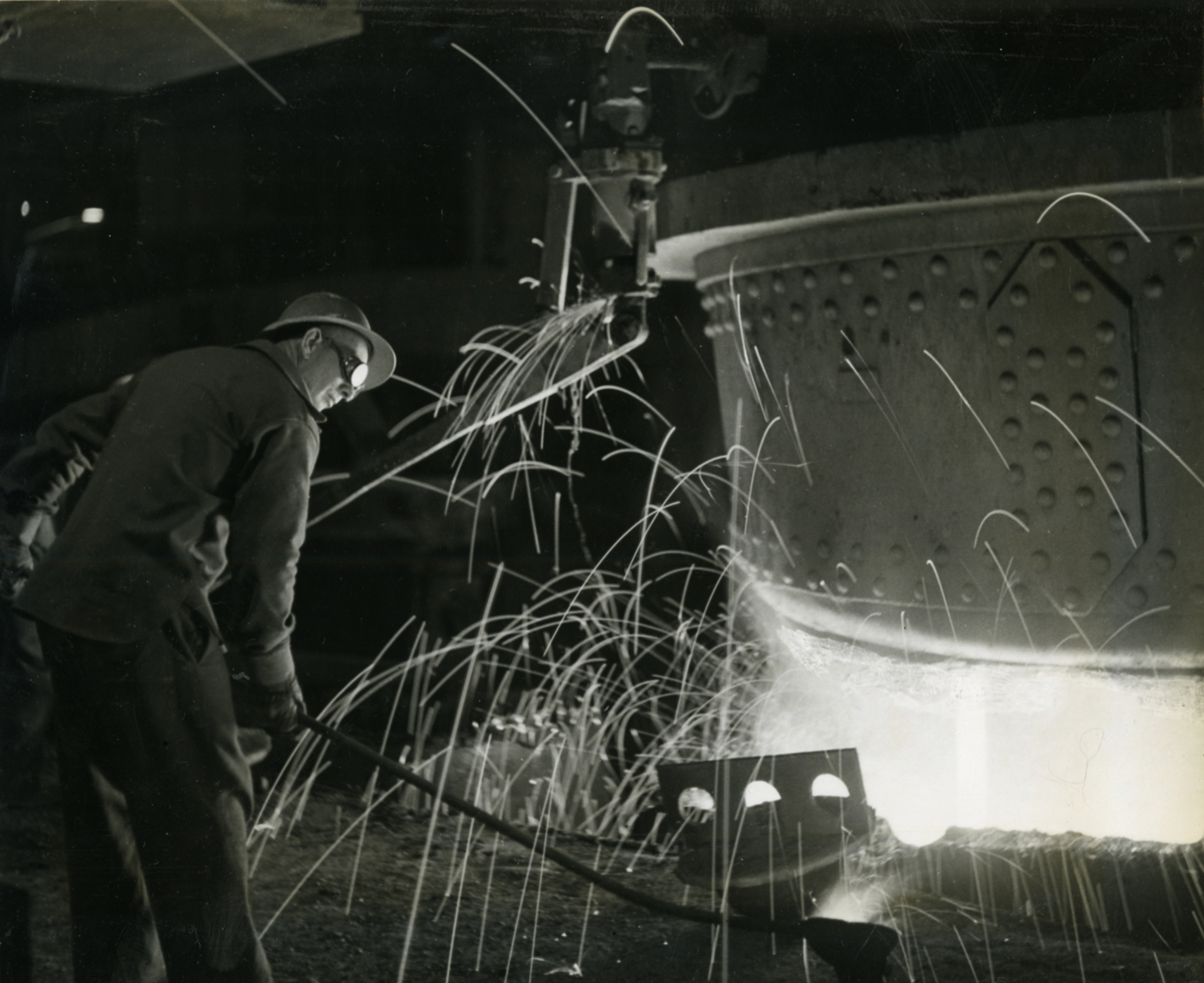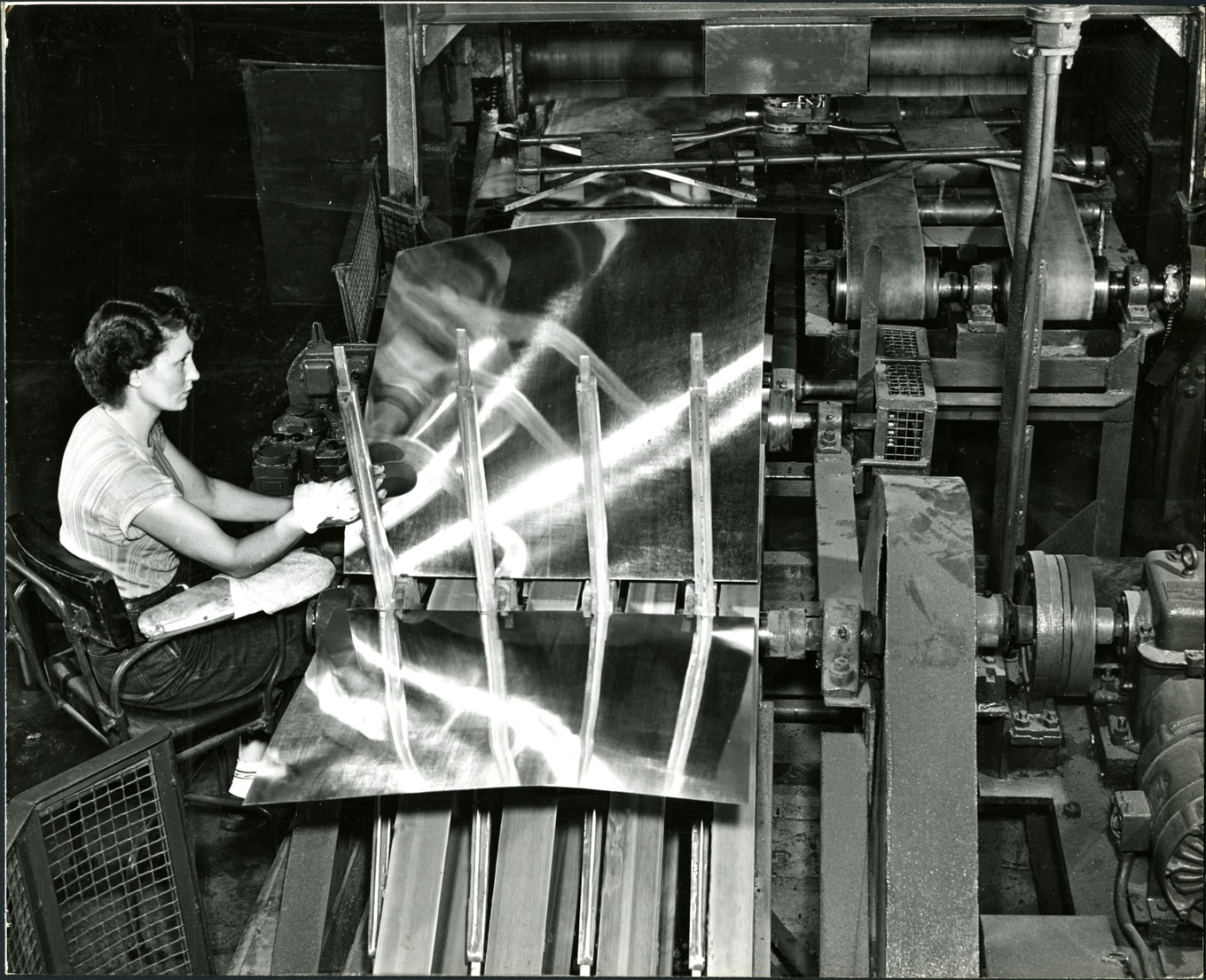Harvard Business School Announces New Exhibit on U.S. Steel Corporation’s Use of Photography as a Public Relations Tool
|
View Video
BOSTON—Harvard Business School’s (HBS) Baker Library Special Collections announced today the opening of a new exhibit, Photography and Corporate Public Relations: The Case of U.S. Steel, 1930 – 1960. The exhibition, catalog, and website examine the ways in which U.S. Steel employed photographs in a variety of public relations campaigns to instill public favor at a time when the steel industry, like today’s technology behemoths, reigned central in the world economy. Organized by Baker Library Special Collections, the exhibit runs through October 6, 2020, in the North Lobby of Baker Library | Bloomberg Center on the HBS campus. In 1901, through the merger of several steel companies, financier J. P. Morgan formed the United States Steel Corporation, creating what was then the largest private company in the world. The staggering size of the corporation, with a total capitalization of $1.4 billion, inspired the Wall Street Journal to write of its “uneasiness over the magnitude of the affair.” Early on, U.S. Steel turned to public relations to address public perceptions concerning the company’s size, working conditions, and profit margins.  Fritz Henle. Taking a sample of steel for testing, Geneva Steel Plant, Geneva, Utah.
Fritz Henle. Taking a sample of steel for testing, Geneva Steel Plant, Geneva, Utah.Photo: Baker Library Special Collections The company was in the first wave of corporations to establish its own in-house public relations department and proved particularly innovative in deploying a variety of media for PR purposes. Beginning in the 1930s, for example, the corporation began producing films, and in 1950s it seized upon the PR potential in the new medium of television. The exhibition features fascinating clips from several U.S. Steel films and sponsored television programs. From 1930 to 1960, the corporation also commissioned photographers around the country to document the inner workings of the company and its subsidiaries. Striking images of steel workers, blast furnaces, and company plants appeared in national magazines, annual reports, souvenir pamphlets, filmstrips, company publications, and exhibitions that reached large audiences. Educational institutions, including HBS, drew on U.S. Steel photographs for teaching and learning purposes.  Tin plate inspection, Fairfield Tin Mill, Fairfield, Alabama.
Tin plate inspection, Fairfield Tin Mill, Fairfield, Alabama. Photo: Baker Library Special Collections “One can easily see the parallel between mid-20th century corporate deployment of photographs and the reliance of companies today on a vast array of social media platforms to promote their services and products and influence public opinion on a global scale,” says Laura Linard, senior director of Baker Library Special Collections. The stunning U.S. Steel photograph collection housed in Baker Library’s Special Collections represents the talents of noted artists, photographers from the corporation’s engineering corps, and local studios near company plants. The photographs document the story of the industrial advances and human enterprise entailed in transforming raw materials into commercial steel products and profit—from the Great Depression to the war years to the post-war boom. Images convey the awe-inspiring nature of steel making and the interplay between worker and machine taking place within massive steel plants. The subjects were dramatic and bold: from mining and transporting iron ore, limestone, and coal; to converting and refining materials into metallic iron and steel in blast and open-hearth furnaces and foundries; to processing and tailoring steel into products ranging from wire to tubes to skyscrapers. “The U.S. Steel photograph collection is an illustrative ‘case’ of the intersection between photography and corporate public relations,” notes Linard. “In an age of the new media landscape, where rapidly proliferating social networks are revolutionizing the reach and influence of corporate public relations, U.S. Steel remains an illuminating case study both in its time and today.” |
Cullen Schmitt
cschmitt+hbs.edu
617-495-6155
About Harvard Business School
Harvard Business School, located on a 40-acre campus in Boston, was founded in 1908 as part of Harvard University. It is among the world's most trusted sources of management education and thought leadership. For more than a century, the School's faculty has combined a passion for teaching with rigorous research conducted alongside practitioners at world-leading organizations to educate leaders who make a difference in the world. Through a dynamic ecosystem of research, learning, and entrepreneurship that includes MBA, Doctoral, Executive Education, and Online programs, as well as numerous initiatives, centers, institutes, and labs, Harvard Business School fosters bold new ideas and collaborative learning networks that shape the future of business.
